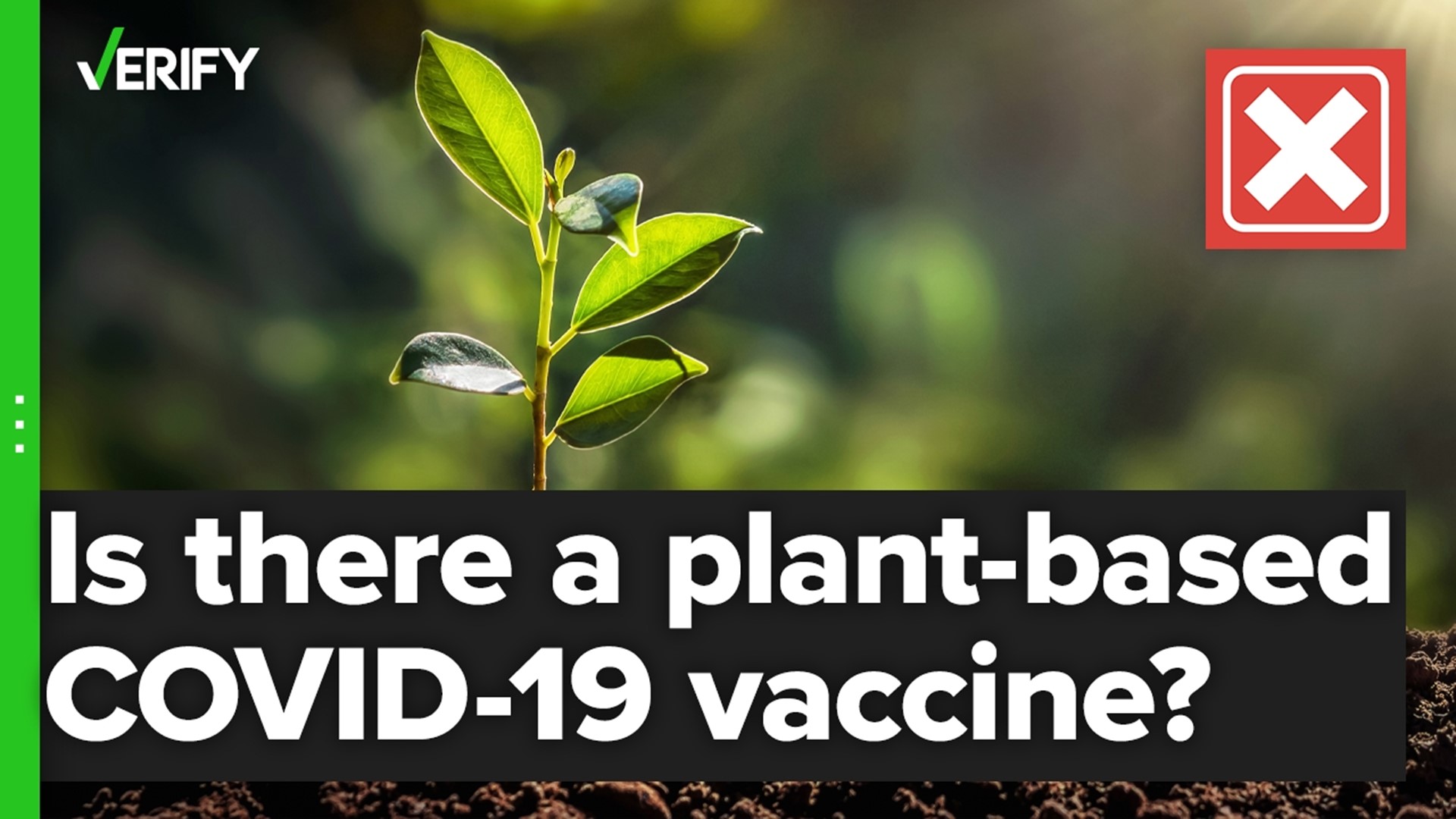On Dec. 6, it was reported in a Bally Sports exclusive that Brooklyn Nets point guard Kyrie Irving might get vaccinated against COVID-19 if a plant-based vaccine is approved. Irving says he adopted a plant-based diet in 2017.
Irving hasn’t played a game this NBA season because of his unvaccinated status, and the mandates across New York make it impossible for an unvaccinated player to hit the home court.
According to the Bally Sports report, Irving has been vaccine hesitant because he is worried about long-term side effects of the currently available COVID-19 vaccines, and because of his “bad experiences with his health due to basketball injuries over the years.”
Google Trends showed that when searching for “Kyrie Irving,” his vaccination status was the third most popular topic.
THE QUESTION
Is a plant-based COVID-19 vaccine currently available to the public?
THE SOURCES
THE ANSWER
No, there is not a plant-based COVID-19 vaccine currently on the market.
Canadian biotech company Medicago, in collaboration with GlaxoSmithKline, reported that they have a plant-based COVID-19 vaccine in clinical trials, but it hasn’t been approved by any regulatory agency. There are also other plant-based vaccines in clinical trials around the globe.
WHAT WE FOUND
A vaccine derived from plants has several advantages, according to the World Health Organization. The vaccines can be produced cheaply in very high amounts and antigens derived from some plants are stable, allowing the vaccines to be stored for long periods of time.
Plant-based vaccines are created using the genetic makeup of the proteins found in the coronavirus, according to a study published by the National Institute of Biotechnology Information.
On Dec. 7, Medicago and GlaxoSmithKline announced their plant-based COVID-19 vaccine is in Phase 3 of clinical trials.
The third phase of the trial was launched on March 16. More than 24,000 subjects were studied across six countries for the phase, and some individuals were given the vaccine and others were given a placebo. The overall efficacy rate was 71%, and grew to 75% against the dominant delta variant, the release said. How the vaccine worked against the omicron variant was not studied.
The plant-based vaccine has not been formally approved by any regulatory board, but a spokesperson for Medicago told VERIFY via email that they would be submitting their vaccine for approval to Health Canada within the next few weeks. If approved, the vaccine would be administered in two doses.
According to Public Health Ontario, the vaccine review process in Canada could last several years before a vaccine is authorized, but given the level of urgency amid the pandemic, revisions were made to the regulatory approval process to expedite vaccines.
Four different vaccines against COVID-19 have been authorized in Canada; those include: AstraZeneca Vaxzevria, Janssen (Johnson & Johnson), Moderna Spikevax and Pfizer-BioNTech Comirnaty.
According to Health Canada, a company can submit an application for a drug or vaccine for use for COVID-19 that:
- had never been approved in Canada
- had previously been approved in Canada for another use
- had been approved by a trusted foreign regulatory authority
Once Medicago receives approval from Health Canada, the spokesperson told VERIFY they plan to submit the data for approval from the World Health Organization, the United Kingdom’s Medicines and Healthcare products Regulatory Agency and the U.S.-based Food and Drug Administration. These approvals would make the product available outside of Canada.
The Canadian biotech firm is not the first one to explore COVID-19 plant-based vaccines across the globe.
In December 2020, Kentucky BioProcessing, the U.S. biotechnology wing of the British American Tobacco Company, announced their plant-based vaccine was in clinical trials. Icon Genetics, based in Japan, launched the first phase of clinical trials of their plant-based vaccine in October 2020.
None have been formally approved.

